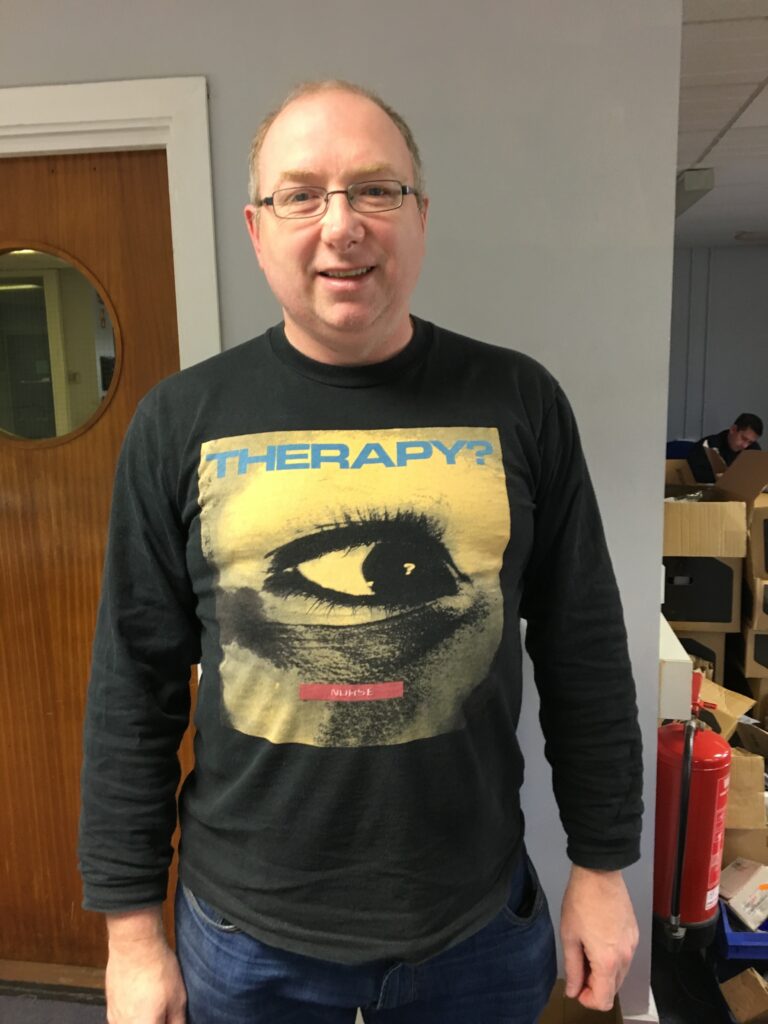A new report from RNID has revealed the difficulties faced by people who need their ear wax professionally removed.
Ear wax is a normal substance that helps protect the outer ear. For most people, it moves out of the ear naturally over time, however 2.3 million people a year in the UK require their ear wax to be removed by a professional. If left untreated, ear wax build-up can lead to temporary hearing loss, earache, a greater risk of infections, social isolation, and depression.
RNID surveyed more than 1,400 adults who have experienced ear wax build-up to find out about their experiences accessing ear wax removal on the NHS, what advice they were given, and what happened next.
Our report found:
- 73% of respondents with ear wax build-up experienced hearing loss, and 37% experienced tinnitus. Half of respondents experienced earache or discomfort, and a quarter experienced dizziness.
- 26% of survey respondents could not afford to get their ear wax removed privately, which can cost between £50-£100.This was especially problematic for hearing aid wearers, who need ear wax removed more regularly.
- Cost for private treatment and long waits for ear wax removal at hospital led many respondents to attempt to remove ear wax themselves, although two thirds did not feel confident doing this.
- Many of the methods people described to remove ear wax were dangerous, including hair clips, paper clips, toothpicks, cotton buds, and Hopi ear candles.
- After trying to remove ear wax themselves, only 20% of respondents said their problems went away, whilst 55% of people noticed no change in their condition. 1 in 10 said their symptoms got worse, or they caused themselves injury which required medical attention.
Historically, most people could access ear wax removal services on the NHS, often through a practice nurse. However, many are now being told to pay privately or remove ear wax themselves. Some people told RNID they were quoted up to £400 for private removal.
Crystal Rolfe, Associate Director for Health at RNID, said:
“We are concerned that many people with ear wax build up are at serious risk of permanently damaging their hearing and their ears now that they are unable to access ear wax removal services on the NHS.
“We’ve heard of people in agony with pain, and depressed at the lack of support they’ve received from health professionals. Some people are unable to leave the house, or are left using a notepad to communicate. Someone with ear wax build-up used to be treated in a week at their GP, but now the service has been withdrawn people who can’t afford private treatment are left with no options. This isn’t good enough. Ear wax removal services must be available on the NHS for everyone who needs them.”
What we’re calling for
- Ear wax removal services to be brought back into primary care or community settings.
- The Department of Health and Social Care, NHS England and local health bodies to explore new models for delivering ear wax removal services to make sure people can access timely and appropriate treatment.
- The NHS to publish clear information on how people can manage ear wax build-up themselves at home.

Lizzie Jackson, 67, developed an ear infection in 2020 which caused a dramatic build-up of ear wax. She said:
“The problem got worse until I couldn’t hear at all and I became completely deaf. The pressure in my ears caused some pain, discomfort and a few balance problems. The only thing was to self-treat for wax build-up so I put in special olive oil for softening ear wax, which I got from the pharmacy.
“The cotton wool that I placed at the entry to my ear canal to stop the olive oil dripping out got stuck deep in my ear. I had to go to hospital to get it removed. They eventually removed the ear wax, but I should have been able to access a practice nurse at my doctors who could have solved the problem several weeks earlier.”

Paul Clarke, 51, lost his hearing through meningitis when he was a child. He used to get ear wax professionally removed at Belfast Royal Victoria Hospital, but the service was stopped during the pandemic. He said:
“I lost my balance and fell. I hit the ground really hard and thought I’d broken my arm. My balance issues were due to the build-up of ear wax, so I contacted the GP who checked my ears. He gave me two options to either go private or go on a waiting list with the health trust. I thought about going privately but it was too costly. I experienced a lot of discomfort and it had a severe effect on my communication with others. Eventually I got an appointment but it took over a year.”